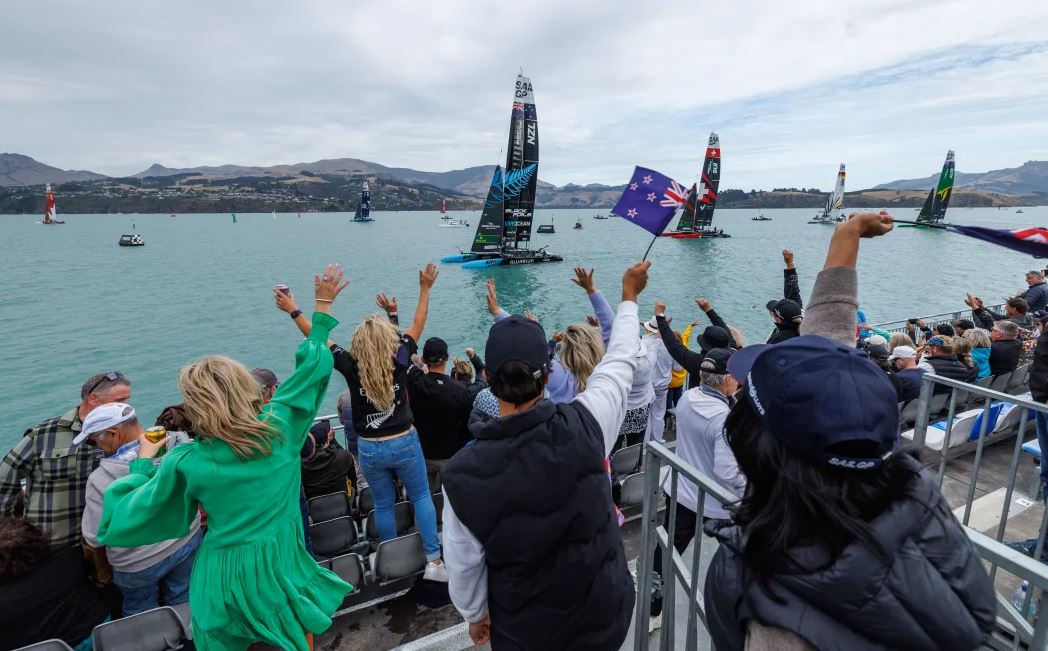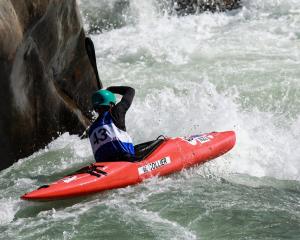
The event, in Lyttelton Harbour, was set to get under way at 3pm on Saturday but was delayed after a dolphin was spotted in the racing zone.
After it had not moved on after two hours, the day's racing was abandoned entirely.
Under SailGP's marine mammal management plan, racing must stop if a dolphin is sighted and not continue until 20 minutes after it is last seen.
The plan was developed alongside the Department of Conservation, Environment Canterbury and Ngāti Wheke to protect Hector's dolphins, which are known to breed around Lyttelton at this time of year.
Hector's dolphins are native to New Zealand and are classed as nationally vulnerable, with about 15,000 in existence.
Coutts, the chief executive of SailGP, said other harbour users were not subject to such "restrictive" protocols.
Nor did other countries require SailGP to agree to such measures before allowing racing there.

He said there were marine mammals in the water in all of the locations where SailGP raced worldwide.
"We've never had an incident in 35 years."
He said there needed to be a balance in the decision-making.
"For example, one could say that because there is a chance of a road death that we shouldn't be allowed to drive on the roads. I suspect most people would conclude that such a stance would be far too extreme and not practical.
"Inherently, as a society we accept an element of risk in our daily lives."
International teams spent considerable amounts of money on sending their teams to New Zealand to compete, Coutts said.
The fans - it was estimated about 11,000 were in Lyttelton on Saturday - were also left disappointed.
"There are a lot of considerations in managing an event like this yet almost none of those are not being properly considered by the environmental and harbour authorities here in Christchurch."

Two of her colleagues from Otago University were on an expert panel discussing the issue ahead of last year's race.
"They already said, 'look, if you absolutely must do it in Lyttelton Harbour then you should do it in the middle of winter'."
Slooten said she was pleased to hear Coutts wanted to move the event to Wellington or Queenstown next year.
It was a poor decision from Christchurch officials to host the races, she said.
"This just seems to be a really bad bet, especially because these dolphins are actually very important economically to the Canterbury region.
"There's a lot of dolphin tourism on Akaroa Harbour. Really you don't want to kill the goose that laid the golden egg."
The second day of racing was due to get under way on Sunday afternoon.












